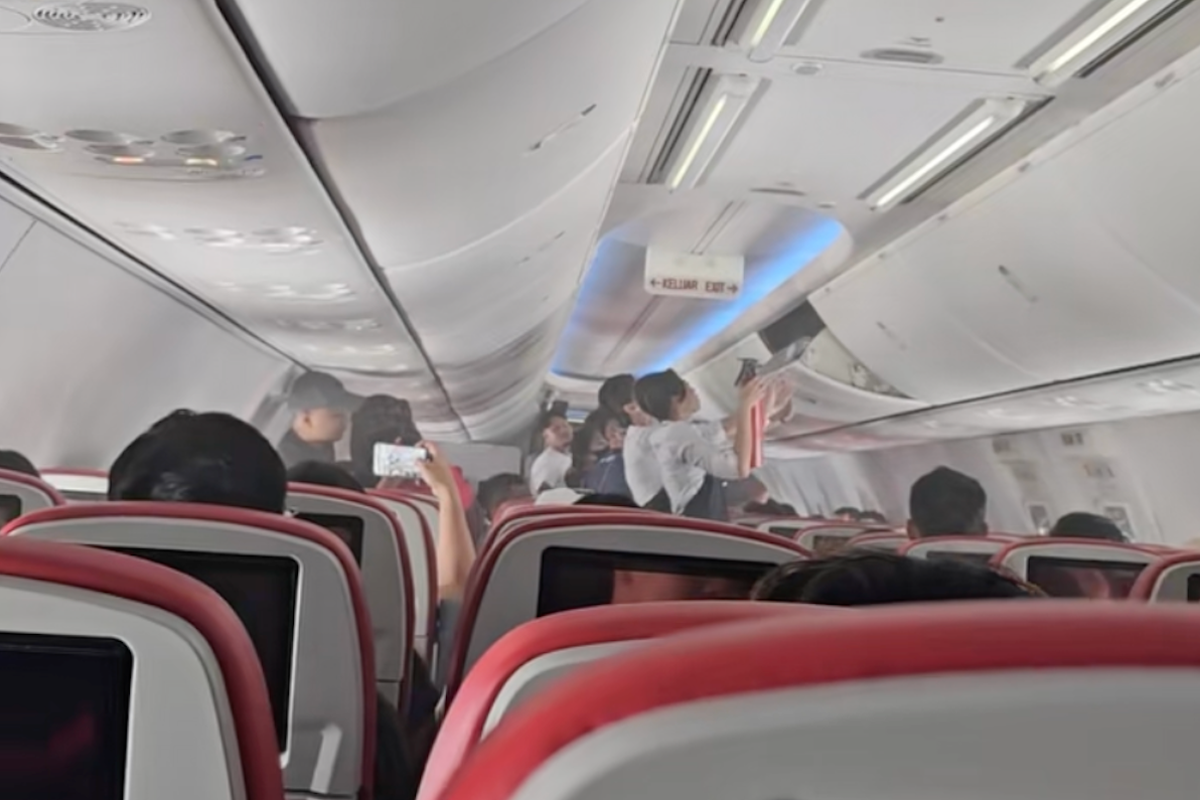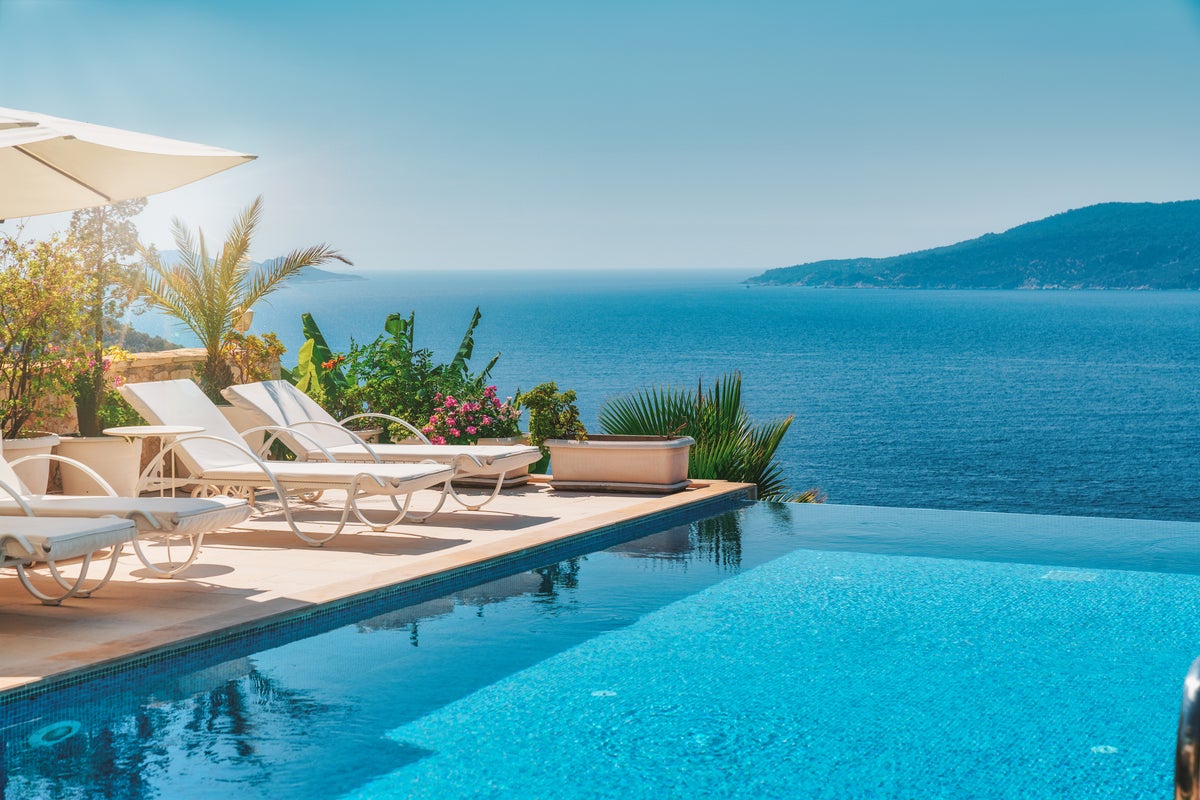Why you should swap the French Alps for the Bavarian mountains this summer
With lush meadows filled with wildflowers, crystal-clear lakes for wild swimming, and castles reachable only by forest trails, Annabel Grossman discovers an outdoor lover’s paradise in Germany’s most picturesque region
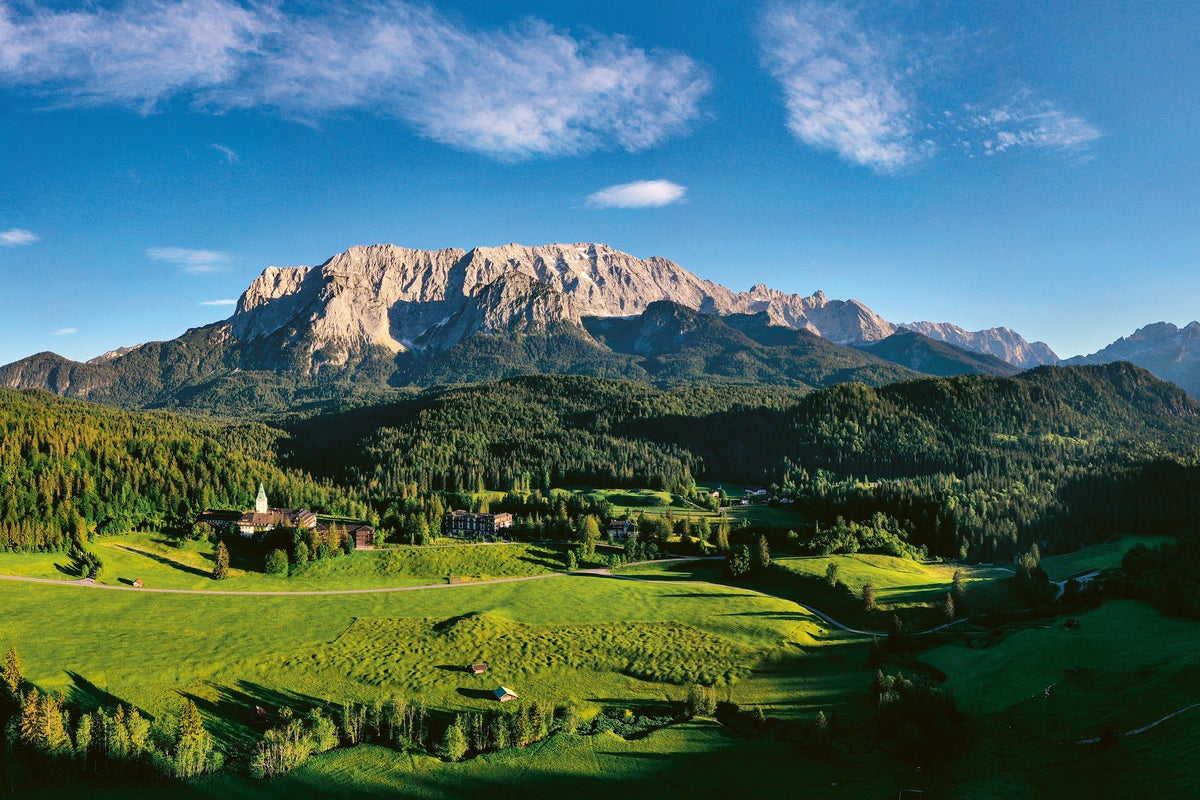
The castle is nothing like I expected. Since I’m in Bavaria, I had visions of towering spires and fairytale turrets, but as I push through the last few hundred metres of climb on my bike and Schachen Castle comes into view, I find myself gazing upon a Swiss-style lodge. The picturesque, if somewhat bizarre, structure was built in 1869 by King Ludwig II of Bavaria as a retreat, allowing him to enjoy the stunning landscapes and the exquisite solitude of the mountains. Indeed, the views from Schachen across the border to Austria are breathtaking.
Inside, things get even stranger. The Turkish Hall is filled with opulent Moorish decor, blending Indian, Baroque and Oriental influences, which contrast with the simple Bavarian interiors on the ground floor. It’s all rather eccentric – a bit like King Ludwig II himself.
Just this month, the Schachen Royal House was added to the Unesco list of World Heritage Sites. There is a charm to this mountain home, although it may not have the classic fairytale beauty of King Ludwig II’s other three Bavarian palaces that also made the list: Herrenchiemsee, Linderhof and Neuschwanstein, the latter of which is known as “the original Disney castle” as it is thought to be Walt’s inspiration for the palace in Sleeping Beauty.
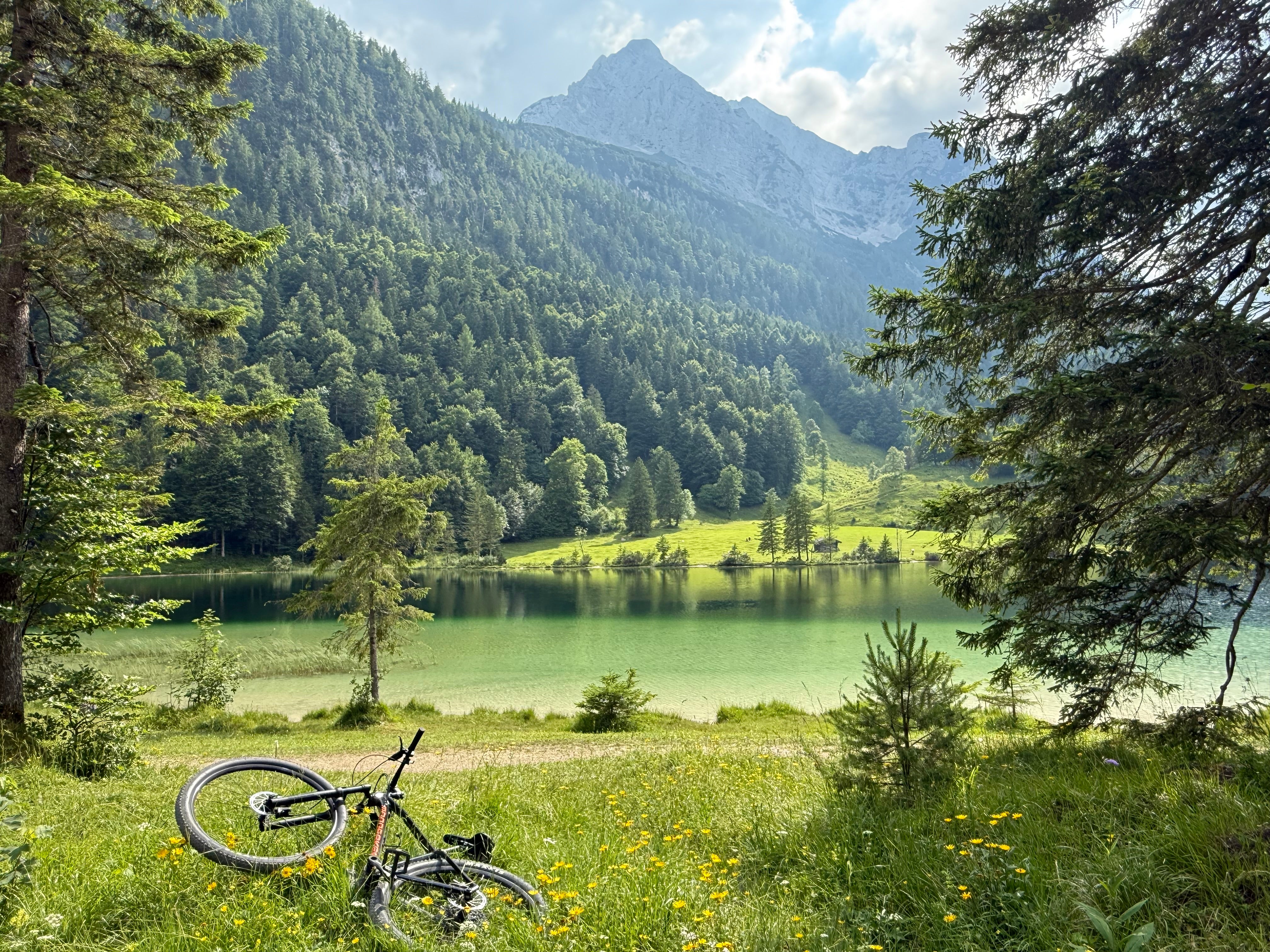
If I’m honest, Germany hadn’t been on my list of summer Alpine destinations. For years, it had been hard to tear me away from the French Alps (I’ve spent a good few long weekends scrambling up mountains and running along trails in Chamonix). Then I’d fallen in love with the Dolomites and spent the past couple of summers gazing upon those jagged peaks bathed in rose gold and wandering through meadows of wildflowers. Bavaria had barely registered on my radar.
Read more: Is this German city ‘Florence on the Elbe’?
It was Schloss Elmau that got me out here. I’d heard tales of the mountain retreat where great thinkers mulled over ideas in the shadow of the mighty Witterstein, classical musicians played great works in the grand concert hall, and athletes had trained on the steep mountain trails. Not to mention, two G7 Summits had been hosted at the retreat in 2015 and 2022. If Angela Merkel and Barack Obama could thrash out the groundwork for the Paris Climate Agreement there then surely the Schloss could work its powers on me.
A little digging revealed that the Schloss has something of a troubled past. It was built in 1916 by Protestant theologian and philosopher Dr Johannes Muller as a space for “personal freedom and religious life” where guests could think, listen to classical music, dance and just be – surrounded by the rugged beauty of an untouched landscape.
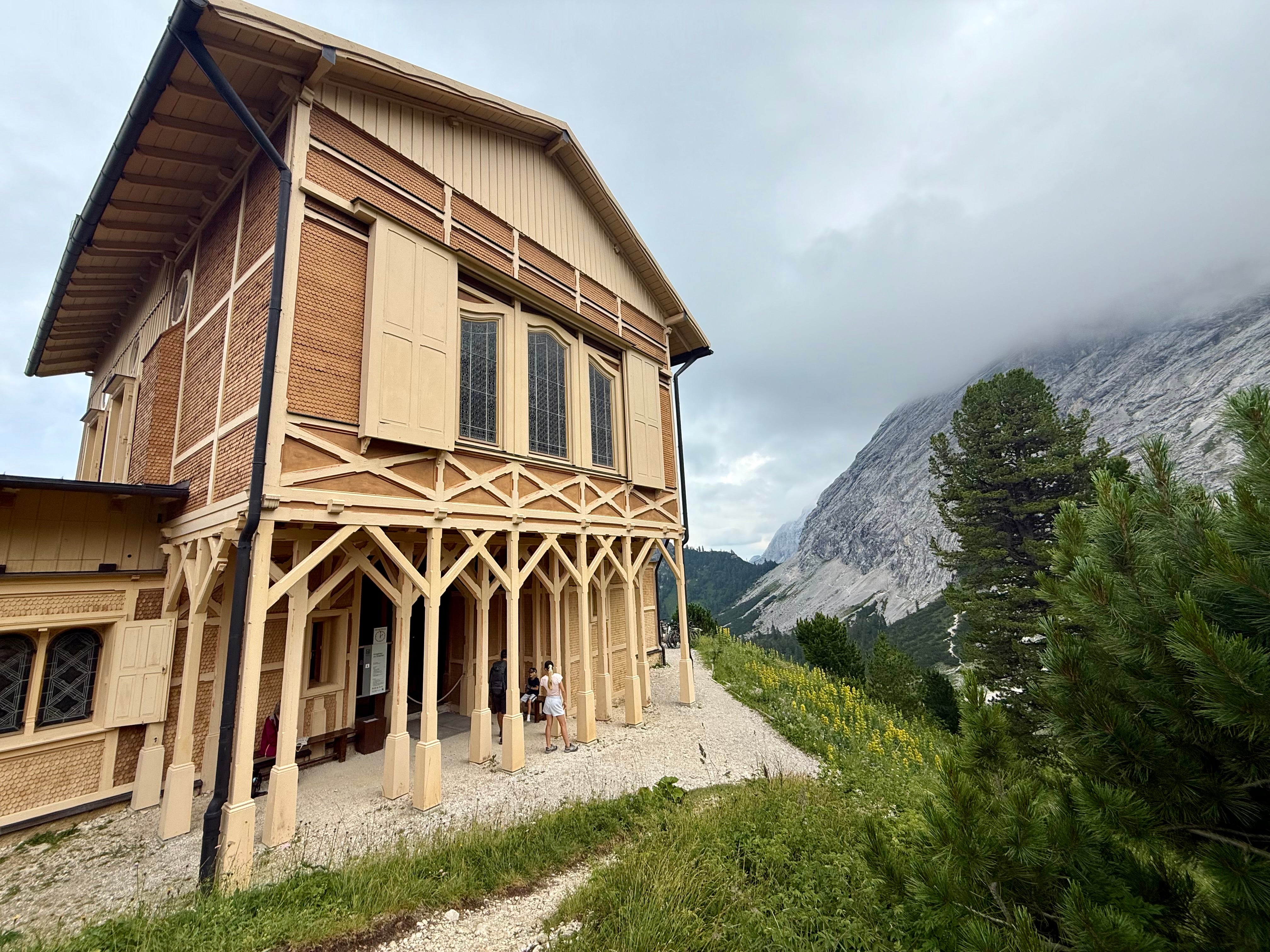
However, as National Socialism tightened its grip on Germany in the 1930s, Muller became known for his admiration of Adolf Hitler, a past that has hung over the resort’s heritage. Dietmar Mueller-Elmau, the current owner and Dr Johannes’s grandson, has been determined to confront this history head-on rather than try to hide it and has worked to transform the resort into the cultural haven it once promised to be.
Schloss Elmau is split into two buildings: the original structure is the Hideaway, while the Retreat was built later and was completed just before the G7 Summit in 2015. The Retreat rooms are expansive, bright and airy, with long balconies and lots of wood, while the Hideaway has a cosier, more traditional feel (while still being very spacious). Dietmar himself has a fondness for the Far East – an elephant is the symbol for Schloss Elmau and you’ll find Asian embroidery throughout, which somehow blends rather seamlessly with the distinctly Bavarian tone.
Read more: Some consider Frankfurt to be boring – it’s actually a cultural marvel
The wellness offering is extensive: six pools (including adults-only, family-friendly and infinity pools), three luxury spas (featuring an Oriental Hamam, Japanese onsen and cold plunge pool), two family spas, and a nature spa on the Ferchenbach Creek with a rustic Finnish sauna. Then there’s that impressive yet intimate concert hall, where musicians from across the world are invited to perform.
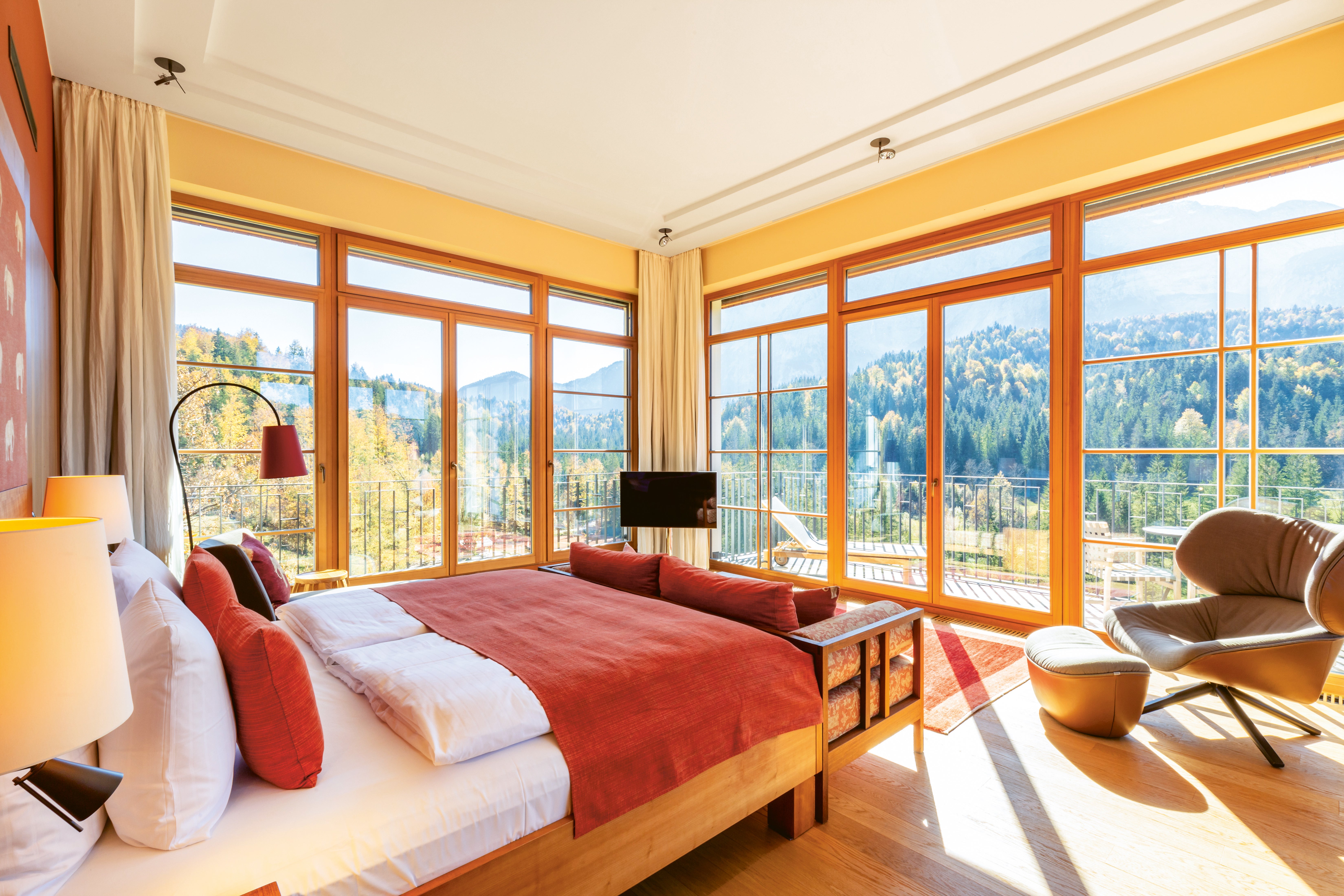
While spoiled for choice with activities, the beauty of the resort for me was its location: it’s the perfect jumping-off spot to explore the Alps. There’s a sports concierge who will equip you with hiking maps, set you up with a bike, and recommend the best spots to experience the mountains.
Eschewing an e-bike (a decision I came to regret at moments), I set out on my gravel bike to visit the Schachen Castle. It’s a 1,300m climb, but the paths are incredibly well-marked. With a bit of sweat and a lot of pushing, I reached my destination. There was a handful of other visitors, but one of the joys of Schachen is that it can only be reached by bike or foot (a round hike will take roughly eight hours from the Schloss, so it’s no stroll in the park).
And herein lies one of the great beauties of the Bavarian Alps – it’s yet to draw the same crowds as the Dolomites and Alps and retains a real sense of tranquility and calm. One morning, I climbed through lush meadows for lunch at the cosy Elmauer Alm alpine hut, where I ate Obatzda (a Bavarian soft cheese) spread on a warm pretzel. I also spent a sun-drenched afternoon cycling from the Schloss to the idyllic mountain lakes of Ferchensee and Lautersee, where I swam in the crystal clear waters.
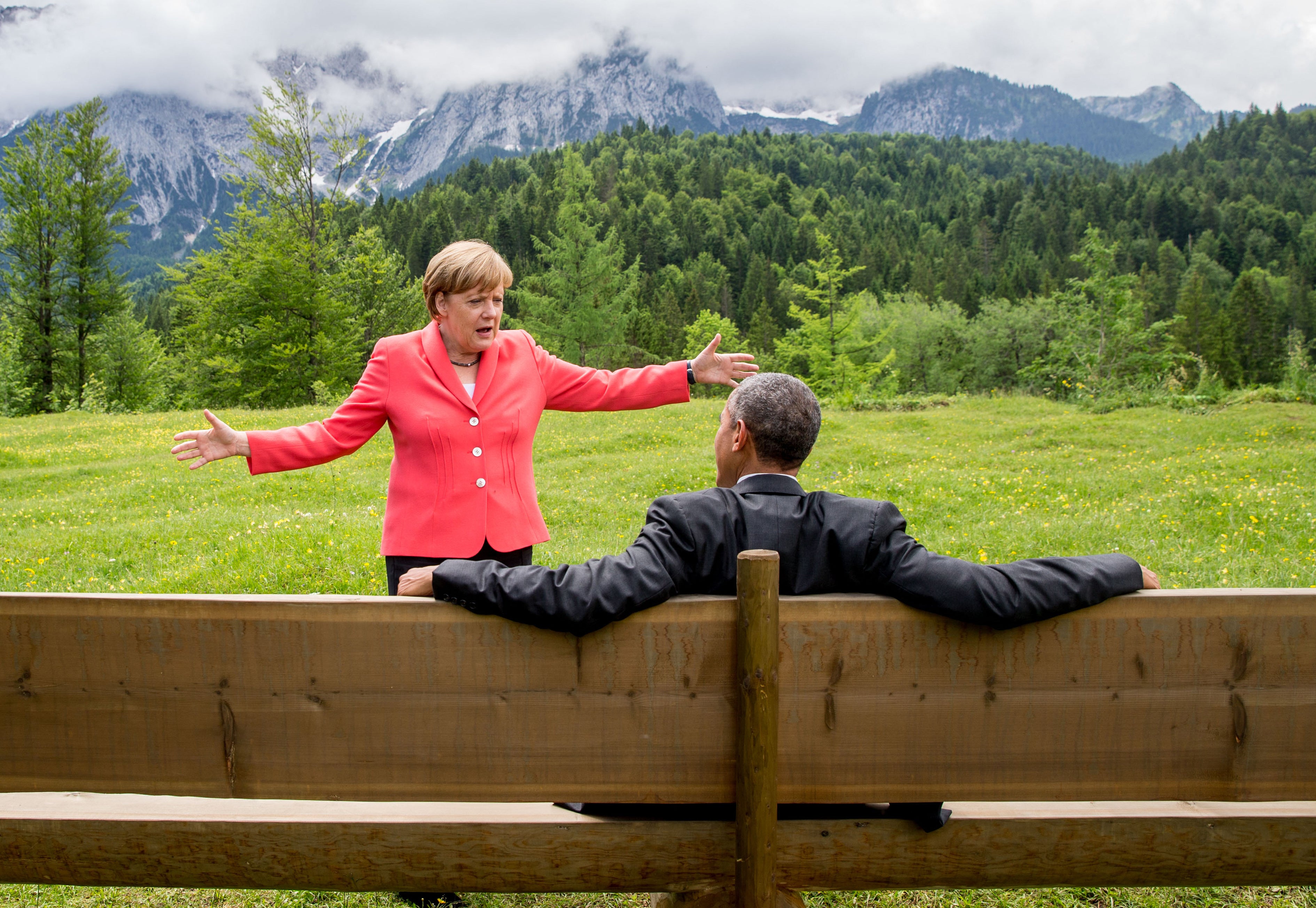
Munich is the obvious jumping-off point for a mountain break, but there are also a smattering of enchanting towns and villages in the region – such as Rosenheim, Regensburg and Würzburg – that offer classic Bavarian architecture, pubs and food (not to mention excellent beer).
So are the Bavarian Alps better than the French version? Well, that’s impossible to say. Each region and mountain range – like each mountain – has its own personality; its own distinct beauty, individual quirks and charms that mean you simply can’t compare. But for summer hikes, spas with breathtaking views, and fairytale castles (in whatever form they take), Bavaria’s mountains certainly deliver.
Annabel stayed in Bavaria as a guest of Schloss Elmau.
Read more: Meet the women running remote refuges in the mountains

 Konoly
Konoly 








